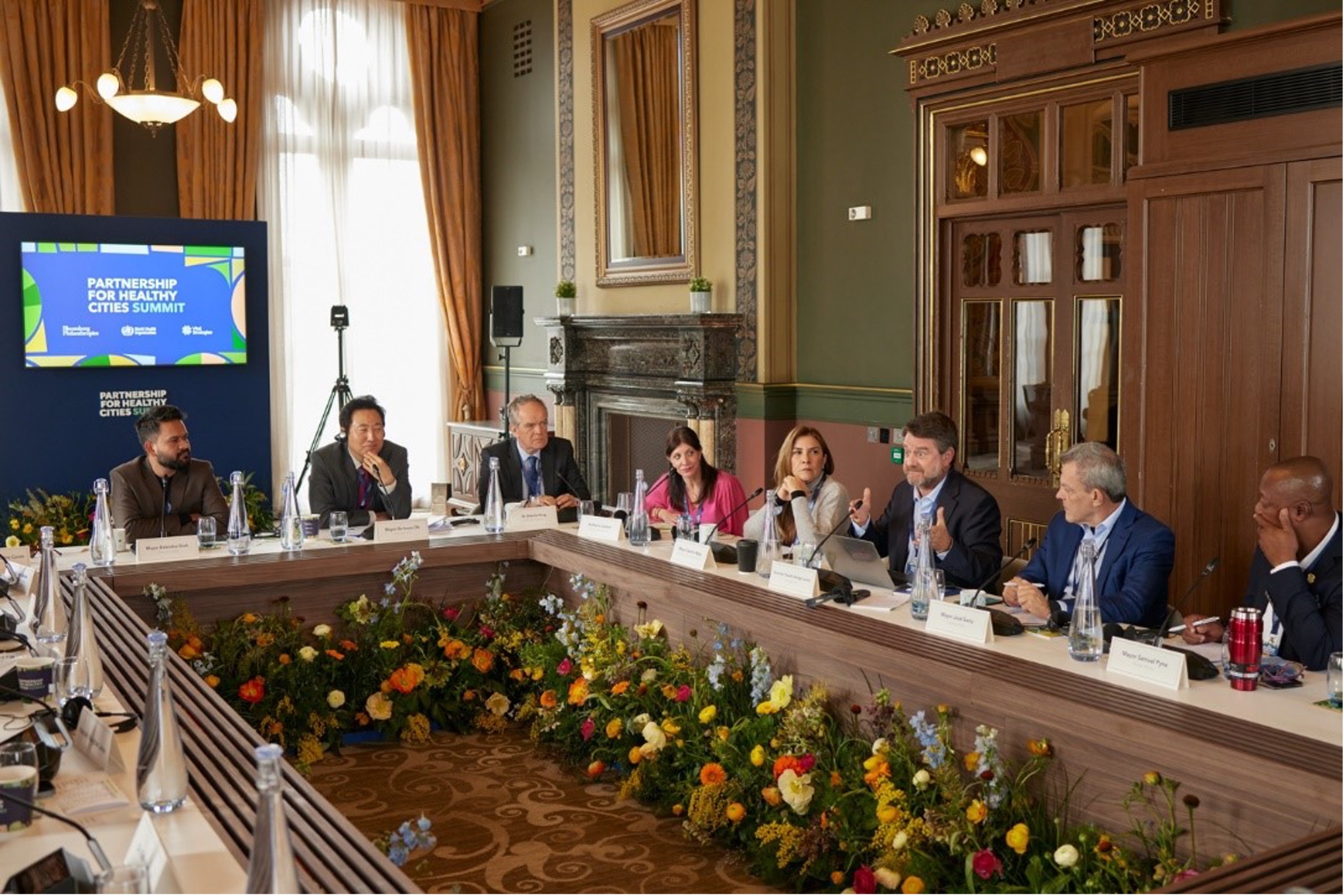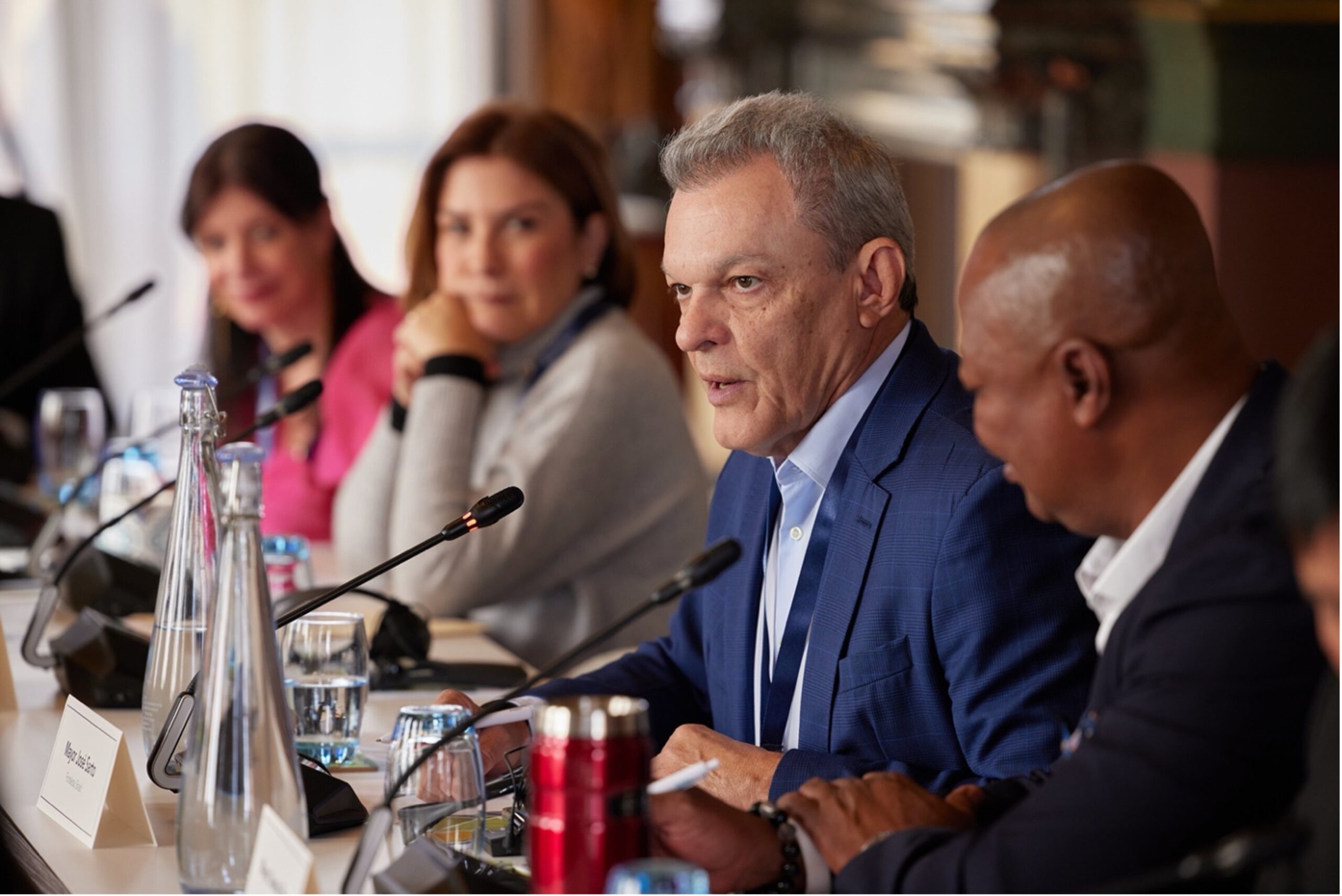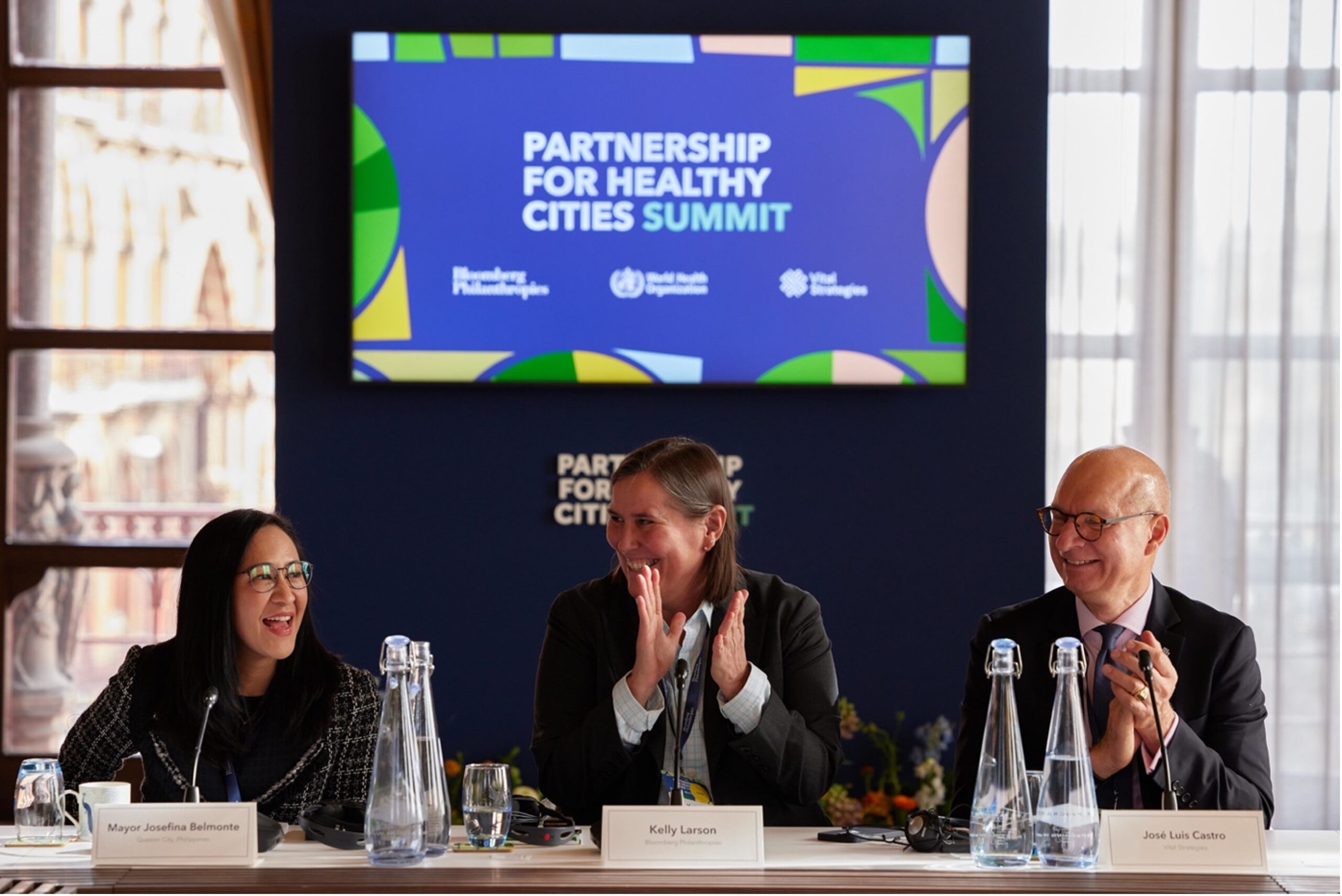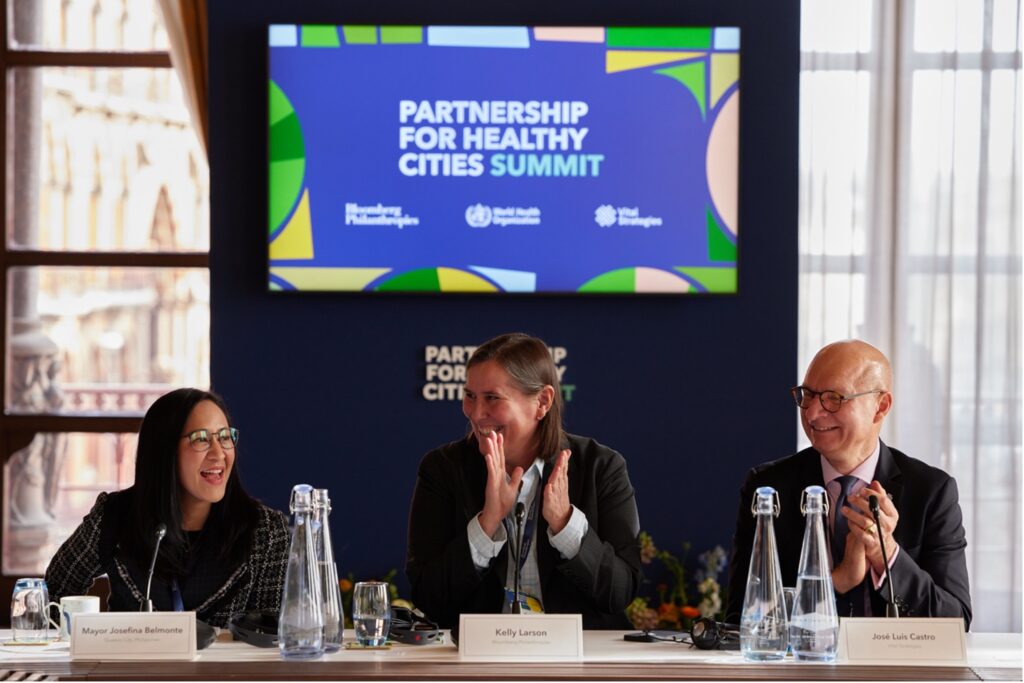
Three years in the making, last month’s inaugural Partnership for Healthy Cities Summit in London was the largest-ever gathering of the global network. Originally planned for March 2020, instead the pandemic forced the mayors and public health experts within the 70-city Partnership to pivot, brainstorming online. On March 15, 2023, they finally met face to face, among more than 300 people from six continents, all committed to tackling noncommunicable diseases (NCDs) and injuries.
London Mayor Sadiq Khan, the event co-host, set a collaborative tone in his opening remarks. As national contexts and politics grow more contentious, he said, “We as cities must remain united and together to confront the biggest challenges of this century.”
During the Summit, five cities were honored for making sustainable and lasting progress toward preventing NCDs and injuries: Athens, Greece, for working to reduce overdose deaths; Bengaluru, India, for tobacco control; Mexico City, Mexico, for road safety; Montevideo, Uruguay, for food policy; and Vancouver, Canada, for working to make public health data more accessible and inclusive.
The two-day event featured a remarkable series of conversations aimed at charting a way forward for cities at a time when NCDs and injuries account for 80% of global deaths—and when the pandemic has taught urban leaders some lessons about prioritizing public health.
Here are three of our main takeaways from a dialogue with these local leaders:
1. Collaboration creates solutions
City governments are often faced with parallel challenges, and working together can help accelerate solutions, even when those cities lie on opposite sides of the globe.
One such collaboration took place in a series of virtual conversations between Greater Manchester, U.K. and Melbourne, Australia—two cities creating smoke-free spaces with Partnership support. The first day of the Summit, the teams met in person for the first time.
“When you’re dealing with a public health initiative on that sort of scale, the cities have quite a bit in common in terms of the barriers and the issues that we came up against,” Joanne Young, Melbourne’s Acting Team Leader, Health Projects, said, speaking alongside her Greater Manchester counterpart, Population Health Policy and Strategy Consultant Andrea Crossfield. “It was good to be able to bounce ideas off each other.”
The cities had a lot to discuss, as both are working to engage marginalized communities and expand smoke-free areas to new locations.
Crossfield said that by pairing the two cities, the Partnership had made room for deeper conversations. “Open and honest dialogue is so helpful,” Crossfield said, noting that it was equally important to share experiences not just of what goes well, but also what doesn’t work.
2. Focus on equity
During a pandemic driven in part by social inequities and a high global prevalence of NCDs, cities were forced to become more agile and responsive. “COVID was such a transformational experience,” said London’s Public Health Director, Kevin Fenton. “We learned so much about how to tackle inequalities and the importance of centering our communities, in the acute response and now in the recovery phase.”
That was certainly the experience in Athens, Greece, which joined the Partnership in 2019 to serve an exceptionally vulnerable subset of the city’s unhoused population: people who inject drugs. This involved providing naloxone kits to reverse drug overdoses and, during the pandemic, also supplies needed to reduce COVID-19 transmission.
We asked Athens Mayor Kostas Bakoyannis—recognized at the Summit for these achievements—why overdose prevention is important for his city.
“It is a question of life and death. Quite literally. Right now, human beings are losing their lives, for no reason. When we have science, when we have data-driven policymaking, it can actually make the difference—this is what we’re doing,” he said.
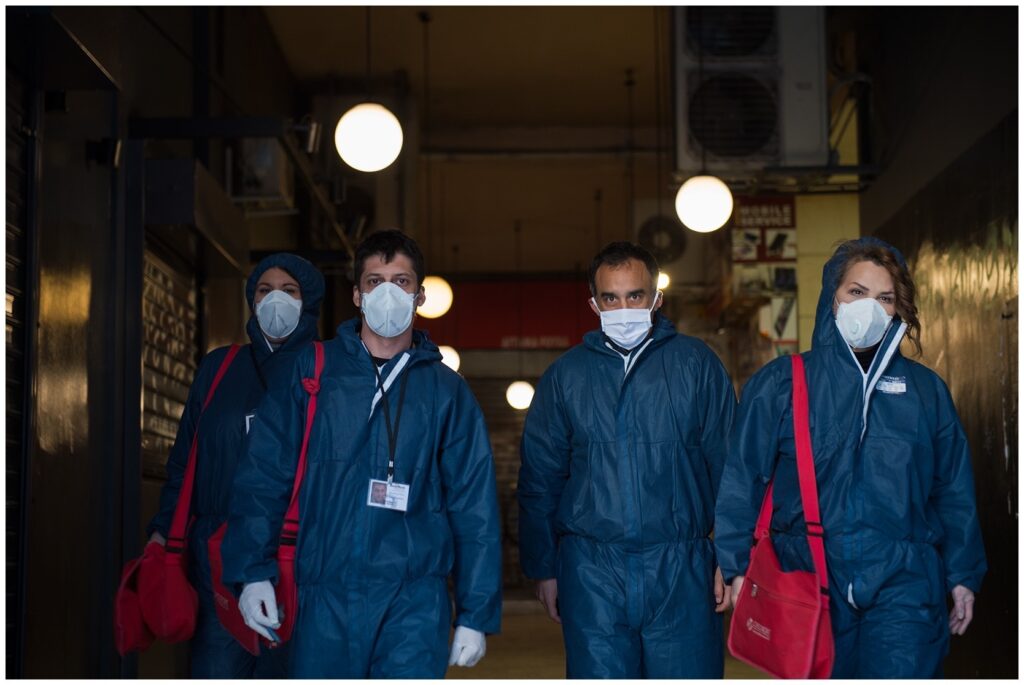
3. Consistency matters
Proven strategies for significantly reducing exposure to NCD and injury risk factors can be swiftly implemented in urban areas. But obstacles, including lack of political will, financing and jurisdictional authority, are real. Again and again, cities emphasized taking the long view on these changes.
Take, for instance, Bengaluru, India, a city that has been working with the Partnership on tobacco control since 2017—and won a Summit Award for efforts to improve compliance with smoking bans. “Tobacco is a major contributor each year to innumerable lives lost,” said Dr. Vishal Rao, a member of the Karnataka State government’s High Power Committee on Tobacco Control. “Every city today should take up tobacco control as a priority to achieve its goals in NCDs.”
On the other hand, he stressed the need for a disciplined, systematic approach. “Our mantra was the three Rs: Make somebody responsible, have them review it and report it regularly,” Rao said.
Similarly, Santo Domingo, Dominican Republic, is using the Partnership’s Policy Accelerator to address a huge road safety challenge through a series of careful steps toward a new speed reduction policy. The city has the second highest rate of traffic fatalities in the Americas. At the Summit, Mayor Carolina Mejía cautioned that policy change takes time: “We can do small actions to start changing things. And for us mayors, sometimes that’s the way to do it. We should start with identifying what we need and where we want to go.”
Valena McEwan, Communication Lead of the Mayor Development Unit in Freetown, Sierra Leone said holding the event face to face helped her grasp the global implications of her city’s Partnership commitment: “Being part of the Summit made us see—made more real—that the work we’re doing contributes to something that’s way beyond us,” she said, “and that everybody has a part to play in ending the prevalence of noncommunicable diseases and minimizing injuries to our populations.”
Want to learn more? Watch the Summit’s livestream recording or find out more about the Partnership here. News coverage from the Summit is available here. And photographs of the Summit are available on Flickr; please credit Bloomberg Philanthropies.
About the Partnership for Healthy Cities:
The Partnership for Healthy Cities is a prestigious global network of cities committed to saving lives by preventing noncommunicable diseases (NCDs) and injuries. Supported by Bloomberg Philanthropies in partnership with WHO, as well as Vital Strategies, this initiative enables cities around the world to deliver a high-impact policy or programmatic intervention to reduce NCDs and injuries in their communities.
For more information, visit: www.cities4health.org and https://partnershipforhealthycities.bloomberg.org/
Get Our Latest Public Health News
Join our email list and be the first to know about our public health news, publications and interviews with experts.
